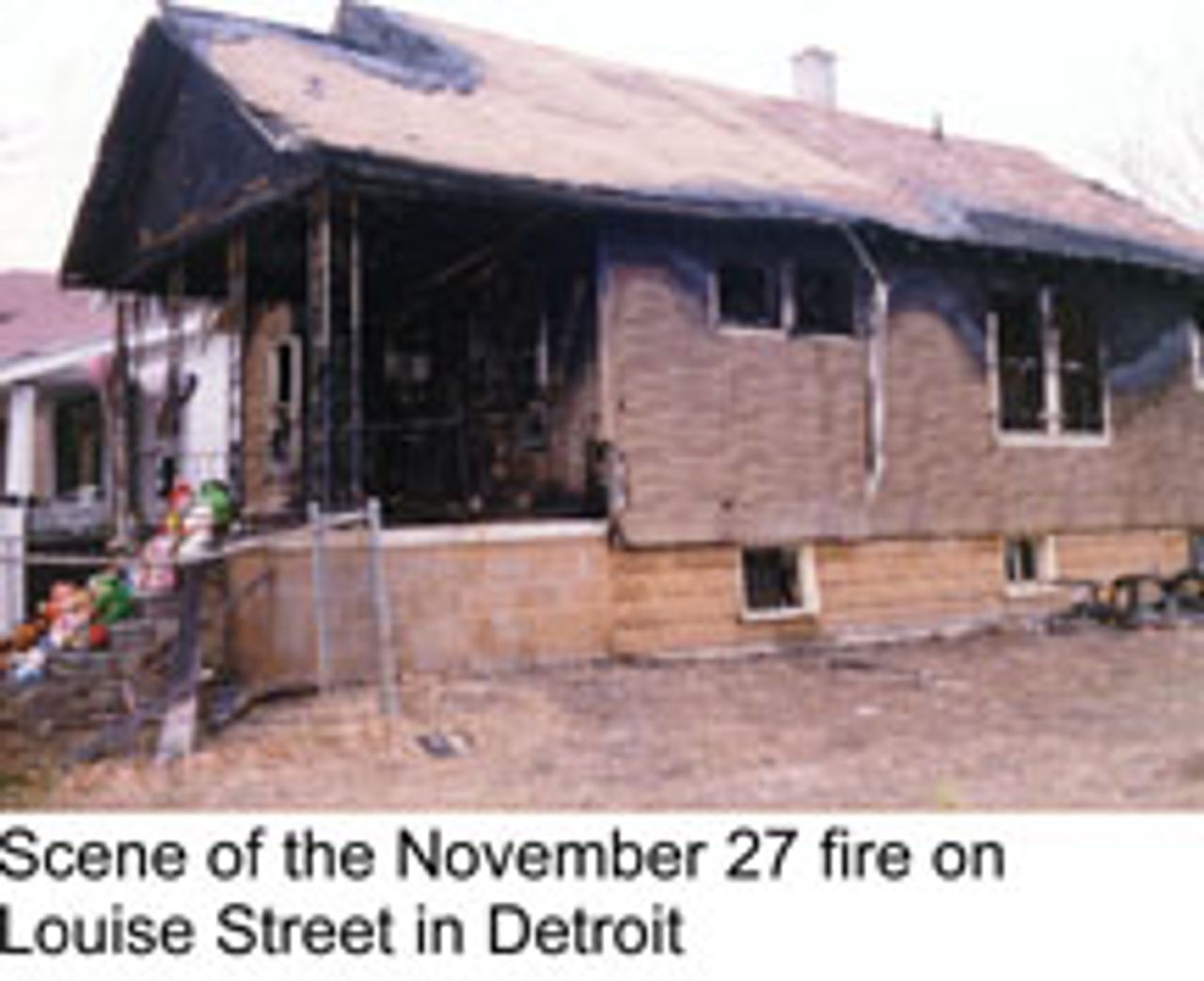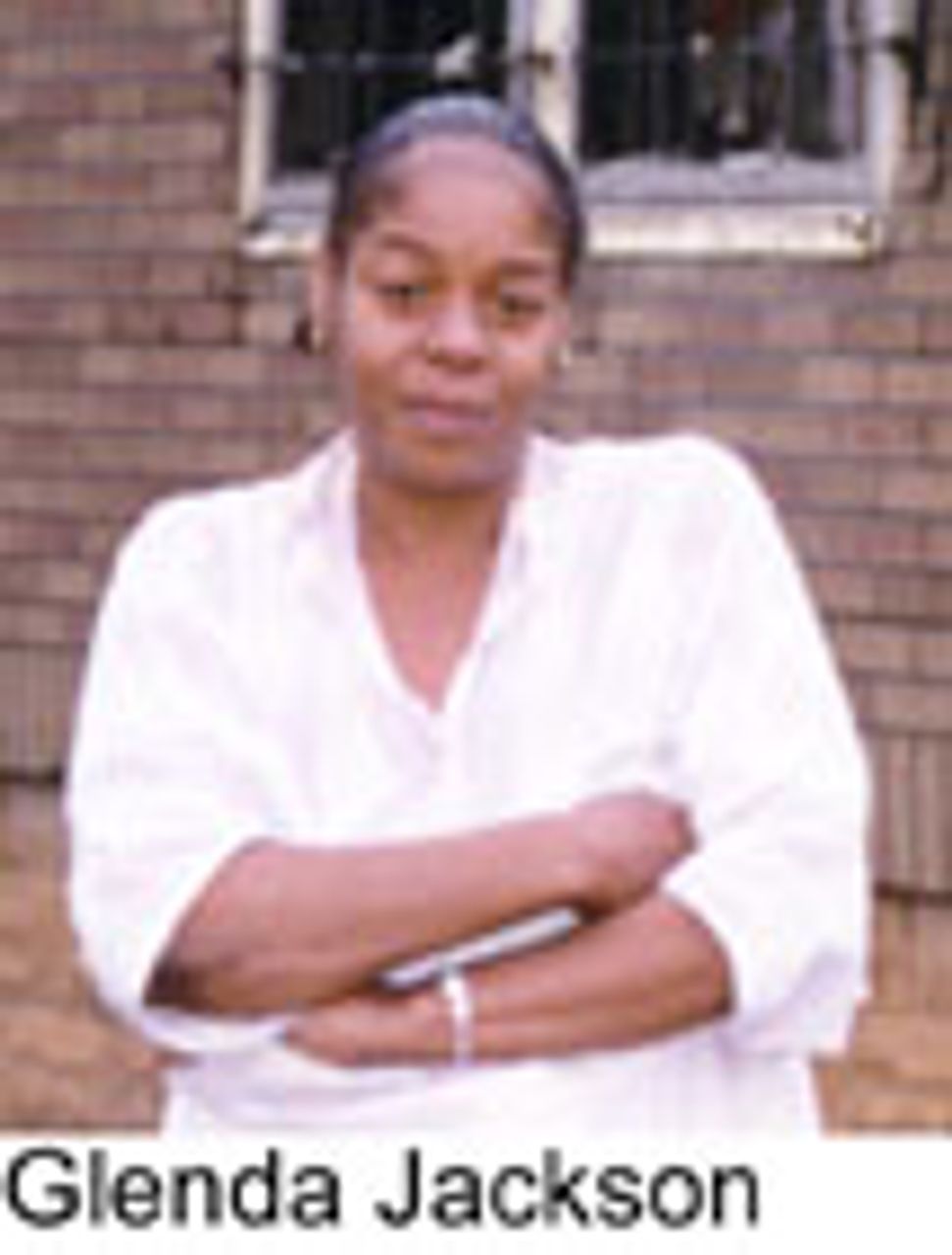 On Friday, November 27, the day after Thanksgiving, nine-year-old Detroiter Erick Bailey was burned to death in a house fire started by candles his family depended upon for light. Bailey and his mother, Martha Williams, spent the holidays without electricity because the utility company had cut off service as they do to thousands in Detroit who unable to pay their bills. The fire on Louise Street, on the city's near west side, is indicative of the suffering caused by poverty in cities across America.
On Friday, November 27, the day after Thanksgiving, nine-year-old Detroiter Erick Bailey was burned to death in a house fire started by candles his family depended upon for light. Bailey and his mother, Martha Williams, spent the holidays without electricity because the utility company had cut off service as they do to thousands in Detroit who unable to pay their bills. The fire on Louise Street, on the city's near west side, is indicative of the suffering caused by poverty in cities across America.
The fire started when a candle caught fire in the boy's bedroom, located in the back of the old wood-framed house. Williams, 39, awoken by her son's screams, tried desperately to reach him but was driven back by the heat of the flames, which was intensified because the wood in the house was dry and was not insulated.
Glenda Jackson, Williams's next door neighbor, said, 'The fire was so bad' that Williams couldn't reach her son. Williams urged Erick to jump out of the window but it was too high for the child to reach. 'Erick also had asthma,' said Jackson, making breathing even more difficult to manage.
Williams cried out to Andrew Clampton, Eric's uncle, for help. Clampton pushed Williams out the front door then tried several times to save Erick from the burning house. Within seconds Clampton, 55, was also overcome by the fire. He was saved by two neighbors and a firefighter who crawled into the house and pulled him out as he lay semiconscious on the floor. Clampton was hospitalized with burns over 20 percent of his body.
When Detroit firefighters arrived they were unable to hose down the house because two fire hydrants located on the block did not have water. According to residents the fire truck that carries water did not work either. After years of budget-cutting the city's public services and infrastructure have been left in a general state of disrepair.
Despite this, two firefighters heroically ran into the house to attempt to save the occupants. After rescuing Clampton they tried to reach Erick but were caught in a flashover, a ball of flame that erupts because of the build-up of heat and gas. The firefighters were trapped in the house, still without water, and security bars on the windows blocked their escape route. Steel bars used to prevent break-ins were on many of the home's windows with the exception of Erick's room.
The firefighters narrowly escaped after they found the door to the basement and climbed out of the window. The fire was finally put out when a working fire hydrant was located a block away.
The reporting by the local news media focused attention exclusively on the fact that bars were on the windows of the home, while the circumstances that led to the fire--the shut-off of electricity to the impoverished family--was hardly mentioned, nor, of course, challenged.
The Williams household had their electricity shut off in July 1998. The electric company later discovered that the meter had been jerry-rigged to provide service to the house. In October the company severed the line from the utility pole to the house to guarantee a termination of service. According to a spokesman from Detroit Edison this is a practice carried out by the utility company every day.
While Detroit Edison admitted that they terminated service to this family, they would not provide information on how many shutoffs they have carried out in 1997 or 1998. In 1993, this reporter chaired a citizens' committee that investigated the circumstances surrounding the death of seven children in a house fire on Mack Avenue, on the city's east side. The investigation uncovered that Detroit Edison had cut off electricity to 17,000 families, affecting approximately 70,000 people, in 1992. The gas company terminated service to 19,000 households, affecting approximately 80,000 people, and the city's water department shut off service to 26,000 households, involving 100,000 residents.
The investigation revealed that tens of thousands of Detroit-area residents were living without one or another essential utility at any point during the year. With the growing devastation of many of Detroit's poorest neighborhoods during the past five years, it is safe to assume that the number of families without heat, light and water has increased.
Another measure of the growth of poverty in Detroit is the 50 percent increase in fire-related deaths during the past two years. In 1996 there were 44 fire-related deaths. In 1997 deaths due to fires increased to 57. Sixty-four people have been killed in 1998 so far, even before the cold winter weather has set in.
 Larry Wimbley, a neighbor of the Williams, said, 'I fault Detroit Edison. These people don't give a damn about the people. It seems to me that if people cannot afford their utility bills they should be able to make some kind of arrangements to avoid shutoff during those cold months.'
Larry Wimbley, a neighbor of the Williams, said, 'I fault Detroit Edison. These people don't give a damn about the people. It seems to me that if people cannot afford their utility bills they should be able to make some kind of arrangements to avoid shutoff during those cold months.'
Wimbley continued, 'People are using kerosene heaters and candles to get by. That's what caused the fire. Clothing caught fire, the mother heard the child screaming, went to open the door, and boom--the fire was so intense that the whole house went up. My wife watched them as they brought him out. It was terrible. He was a beautiful kid; he did not have to die like that.'
The Williams home was located in a close-knit but impoverished working class neighborhood adjacent to Highland Park, the poorest city in Michigan. Erick's mother was unemployed like many of her neighbors. A US Census survey of the area showed that the median household income is less than $14,000 a year, a sum so low that many families are forced to choose between eating or paying essential utilities.
Pat Sims, a neighbor across the street from Williams, said, 'I fault the fire truck because it didn't produce water. How can you fight a fire if you don't have water?'
Mark Knowles, president of Fire Fighters Association Local 344, said the city was placing citizens and firefighters' lives in danger because of faulty equipment and indifference. Knowles has made several complaints about poor equipment to the city.
'I turned in three pieces of equipment [to Michigan Industrial Organization Safety Administration-MIOSHA) to get their attention,' he said. 'All three pieces are out of service, they are down at the shop, and those areas are not being complemented by a truck now.' One of the companies without sufficient equipment, according to Knowles, is the Dexter and Ewald Street station that covered the Louise Street fire.
When firefighters respond to a call they generally require an engine to pump water, a ladder truck and a squad truck with additional men. 'They are housed together,' said Knowles, 'they work together as a unit, but engine 47 has no truck now running right with them. They have to wait for a different truck that's coming away from quite a distance. And it's important that when you get on the scene everybody attacks the fire and performs his or her job at the same time because the fire isn't kind enough to wait for you. He just keeps on going.'
The union is taking the city to court over the lack of safe equipment and proper manning levels. The union, presently involved in contract negotiations, has charged that city cutbacks have left the department with 100 fewer firefighters than are needed. The lack of manpower and work overload has led to the injury of 90 firefighters, according to the union.
 Glenda Jackson, the next door neighbor of Martha Williams, attacked the cuts in social services and the patent disregard for their human cost. Jackson said Williams was unemployed but receiving Social Security Insurance, a fund for the disabled. 'But I know she didn't get anything last month. It's messed up. People are supposed to go to the Work First Program [welfare] but it's not enough money. Before they wouldn't let your lights get cut off, but now, you're on your own. Detroit Edison and MichCon [the gas company] are in cahoots. They don't care if you get shut off in the winter.'
Glenda Jackson, the next door neighbor of Martha Williams, attacked the cuts in social services and the patent disregard for their human cost. Jackson said Williams was unemployed but receiving Social Security Insurance, a fund for the disabled. 'But I know she didn't get anything last month. It's messed up. People are supposed to go to the Work First Program [welfare] but it's not enough money. Before they wouldn't let your lights get cut off, but now, you're on your own. Detroit Edison and MichCon [the gas company] are in cahoots. They don't care if you get shut off in the winter.'
Jackson said, 'It really breaks my heart. Erick was always at my house. Thanksgiving Day was Martha's thirty-ninth birthday.'
See Also:
New York welfare policy claims an infant's life
[27 November 1998]
